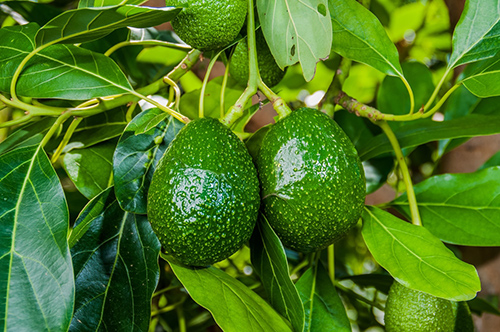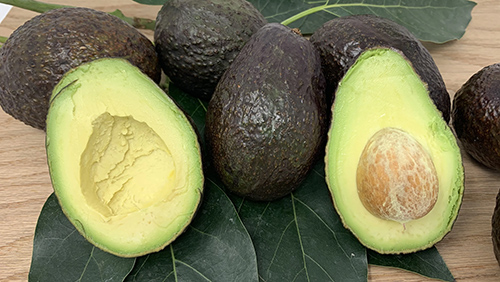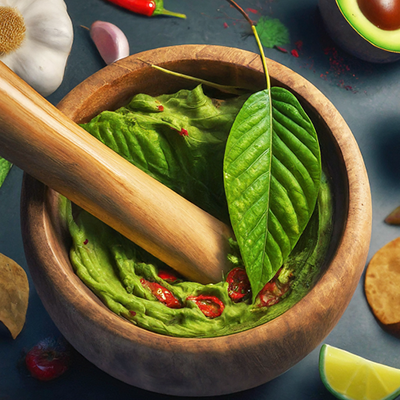Contents

The avocado tree is also known as the “testicle tree,” which is the true meaning of avocado in the native language. The Aztecs and the Mayans have used it as a meat substitute since ancient times. The widespread wisdom of these people led them to discover the many health benefits of avocados.
According to scientific knowledge, avocado is better than meat for dietetic qualities. Avocados contain from 160 to 200 calories per 100 g, close to 230 calories per 100g of a beefsteak. However, they lack any cholesterol content.
Highly digestible avocado fats are chemically similar to those of olive oils. Though less than meat, its protein content does not produce waste like uric acid, which acidifies and overloads the body. The avocado tree has other medicinal applications besides those of the fruit.
Avocado Tree Scientific Facts
- Other names: Persea gratissima Gaertn, avocado tree, alligator pear
- French: Avocatier
- Spanish: Aguacate
- Environment: Native to Central America, its cultivation has spread to other tropical and subtropical areas of the Earth.
- Description: The tree of the Lauraceae family grows from four to eight meters high, with large leaves. It renders pear-shaped, green fruits, which contain yellow-green flesh and an egg-shaped seed, quite large compared to the fruit size.
- Parts used for medicinal purposes: The fruits (flesh and seeds) and the leaves.
Preparation and Use
- An infusion prepared with four or five large leaves per liter of water. Drink several cups daily.
- Decoction with 8-10 mashed seeds. Boil until it becomes a light paste, strain, and drink half a cup thrice daily.
- Avocado oil: Let the fruit ripen until it seems rotten. Then boil in a bowl with water and gather the surfacing oil with a spoon. After this, strain through a cloth to eliminate impurities. This oil is applied by massaging on the affected area or the scalp.
- Poultices with the paste obtained in the seed decoction prepared for internal use.
Properties and Indications

The flesh of the avocado fruit contains 15 to 25% fats formed by oleic acid, linoleic acid, palmitic acid, and other sugars, proteins, mineral salts, and vitamins. Its high iron content is especially remarkable, as well as that of vitamin B6. Avocados reduce cholesterol in the blood, very likely due to their high portion of mono and polyunsaturated fatty acids and digestive properties. Eating this fruit benefits people with anemia, exhaustion, high cholesterol, high blood pressure, gastritis, and gastro-duodenal ulcers.
Also, the use of avocado oil is an excellent remedy for the following ailments:

- Skin afflictions: eczema, chemically or mechanically caused irritations, dry or cracked skin, etc. When directly applied to the abdominal skin, it prevents pregnancy stretch marks. It also hydrates and makes facial skin more beautiful; thus, it is part of many beauty and cosmetic preparations.
- It eliminates dandruff, stops hair loss, and adds strength and smoothness to the hair.
- When applied with a massage, it alleviates rheumatic, articular, and muscular aches.
The avocado tree leaves are rich in tannin-related substances. Mexico and Central American countries use them as an infusion because of their digestive and antiflatulent properties. They are also used for headaches, directly applied on the forehead, though this habit has not been scientifically proven correct.
The large avocado seeds are applied after being mashed as poultices for abscesses and furuncles. The water of the same decoction is used for dysentery and intestinal parasites.
DISCLAIMER: All content on this website is presented solely for educational and informational objectives. It would be best to not rely on the information provided as a replacement for advice, diagnosis, or treatment from a qualified medical expert. If you are pregnant, nursing, or have any preexisting medical concerns, you should talk to your doctor before using any herbal or natural medicines.
References
- George D. Pamplona-Roger, M.D. “Encyclopedia of Medicinal Plants.” George D. Pamplona-Roger, M.D. Encyclopedia of Medicinal Plants. Ed. Francesc X. Gelabert. vols. 2 San Fernando de Henares: Editorial Safeliz, 2000. 719, 720. Print.
- https://pubmed.ncbi.nlm.nih.gov/
- https://scholar.google.com/
- https://www.mayoclinic.org/
- https://my.clevelandclinic.org/
